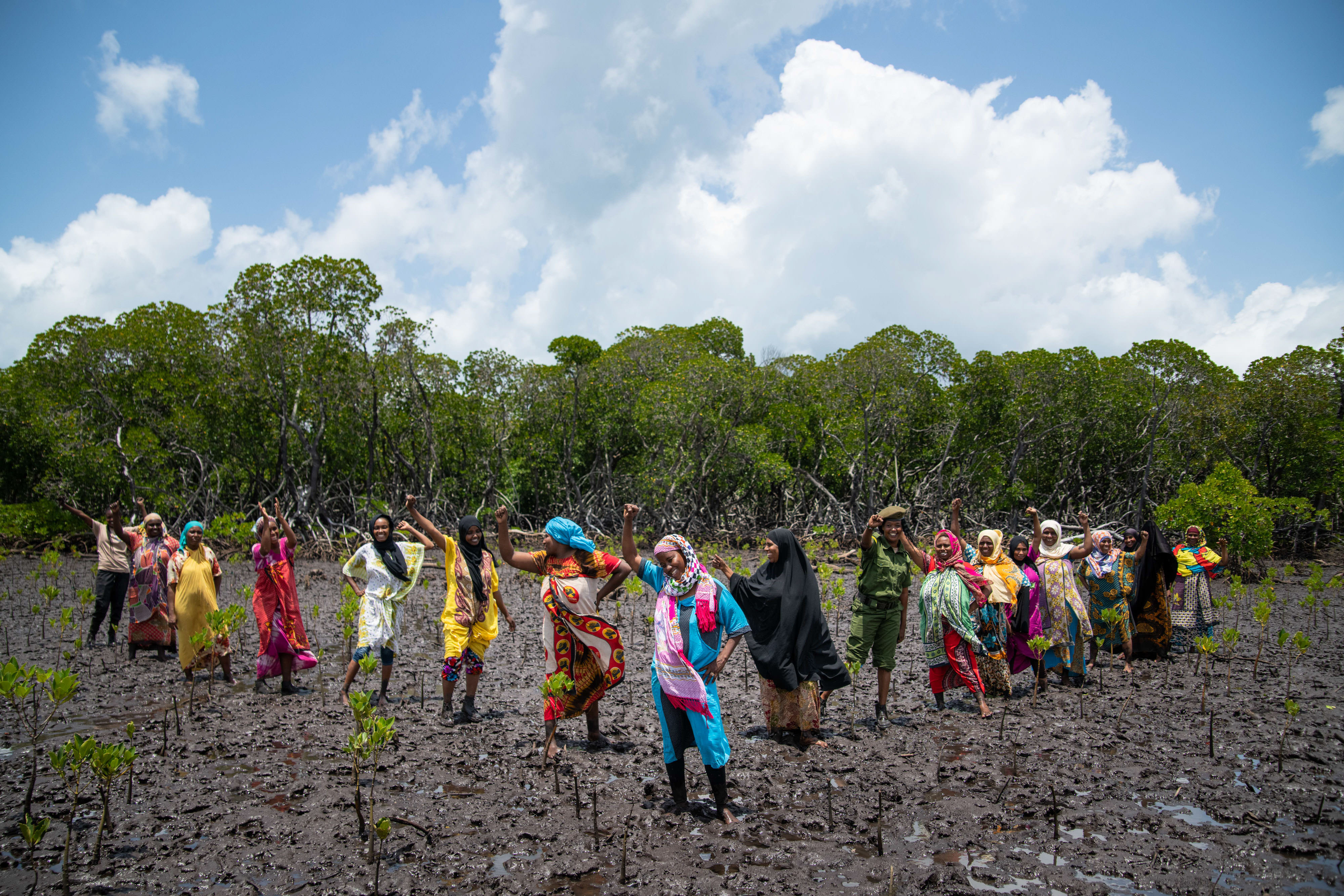Build on America’s strong commitment to conservation through cost-effective programs that help promote global security and shared prosperity by sustaining nature and the services it provides to people everywhere.
What Is Natural Security?
We all benefit from international conservation efforts.
Learn more about Natural SecurityThe actions we take this decade will determine if we can halt catastrophic climate change and biodiversity loss. Left unaddressed, these challenges will also severely undermine American security interests.
The U.S. government can provide urgent and comprehensive steps for the planet to be more sustainable and for overburdened communities to recover and thrive. This includes committing to the global vision of conserving 30% of remaining biodiversity by the year 2030.

Our Global Approach to Conservation
The Nature Conservancy's (TNC) efforts in the United States and abroad are closely related.
For example, the organization’s work with ranchers in the American West informs its current program in Kenya, where TNC is helping to introduce better grazing practices and more efficient marketing of cattle.
TNC supports local conservation groups in the developing world that work to increase the effectiveness of protection at parks and preserves established by local governments.
How Congress Can Act
TNC respectfully requests fiscal year 2024 international conservation appropriations at the following levels
-
$500M
for U.S. Agency for International Development (USAID) biodiversity conservation
-
$150.2M
for the Global Environment Facility
-
$300M
for Sustainable Landscapes
-
$20M
for the Tropical Forest and Coral Reef Conservation Act
In addition to the above funding, TNC urges Congress to support international climate action, including the Green Climate Fund; to provide firm legislative guidance to USAID directing the agency to maintain conservation as part of its mission; to support large regional conservation programs, which are often the most efficient way to address problems that cross national borders; and to provide U.S. foreign aid to enable landscape-level infrastructure planning, which can reduce habitat destruction and community impacts while still achieving development goals such as power generation.
The U.S. contribution is especially important for leveraging and expanding private investment in more sustainable development. Strategic investments will support innovative policies and enabling environments in countries worldwide.
Priorities for International Conservation

USAID Biodiversity Conservation Programs
Assistance for conservation is focused on addressing priority threats to biodiversity and integrating biodiversity with other sectors for improved conservation and development results. With its new biodiversity policy, USAID is building on its successful track record in more than 50 countries to reduce resource loss and degradation, such as illegal extraction of natural resources, overfishing, poor agricultural practices and weak governance. USAID increasingly works with the private sector, universities and other partners to leverage both dollars and innovation for cost-effective conservation solutions. Nearly half the funds are targeted in tier 1 nations such as Kenya, Tanzania, Indonesia, the Philippines and countries in the Amazon and Congo basins. TNC asks Congress to continue this critical work at the $500 million level.
Sustainable Landscapes
Tropical forests continue to be one of the most threatened ecosystems in the world, but efforts funded in part by Congress are advancing conservation in these areas. These initiatives prepare developing countries to curb deforestation while addressing rural poverty, good governance and land tenure issues, securing emissions reductions and developing greater resilience in their landscapes. Through multilateral funds such as the Forest Carbon Partnership Facility and the Forest Investment Program, the United States has supported efforts to scale up these frameworks. TNC asks Congress to support $300 million for this work.

Global Environment Facility (GEF)
The GEF is an international financial institution that provides grants to support the sustainable use of natural capital and improved management of natural resources. With 4,700 projects in 170 countries, the GEF is the largest single financier of conservation. For 28 years and with $20 billion in strategic investments, the GEF has leveraged $107 billion in co-financing from the philanthropic, public and private sectors. For example, the GEF is partnering with McDonald’s, Cargill, Coca-Cola and PepsiCo to promote sustainable land and water management in Latin America, Africa and Asia. TNC asks Congress to support $150.2 million to honor the United States’ pledge to the GEF.
Science, Finance and International Cooperation
Two United Nations programs—the Intergovernmental Panel on Climate Change (IPCC) and the Framework Convention on Climate Change (UNFCCC)—have received funding from the United States for years. The IPCC, for example, has received broad bipartisan support for providing high-integrity science on climate change since the panel’s creation in 1988. Similarly, the UNFCCC has been the primary space for policymakers to mount an international effort to tackle these risks. The United States has won plaudits worldwide for leading on climate action. U.S. foreign assistance also leverages substantial private investment in energy efficiency and renewable energy technologies. TNC supports the president’s request for the Green Climate Fund in fiscal year 2024. Continued funding of a modest budget line will signal that the United States continues to place an importance on climate science and wants a place at the table in negotiations.




